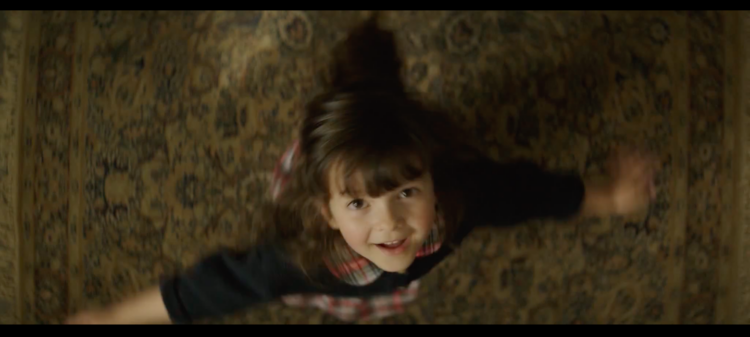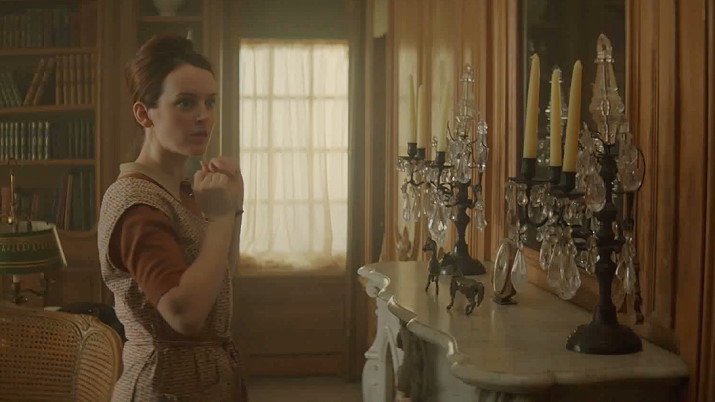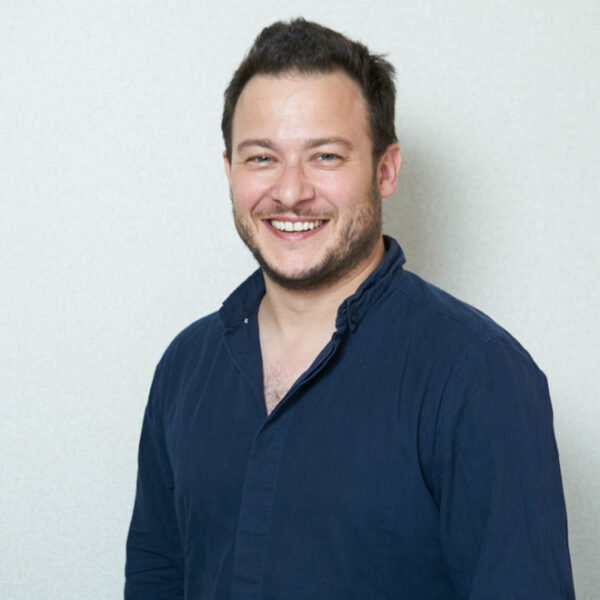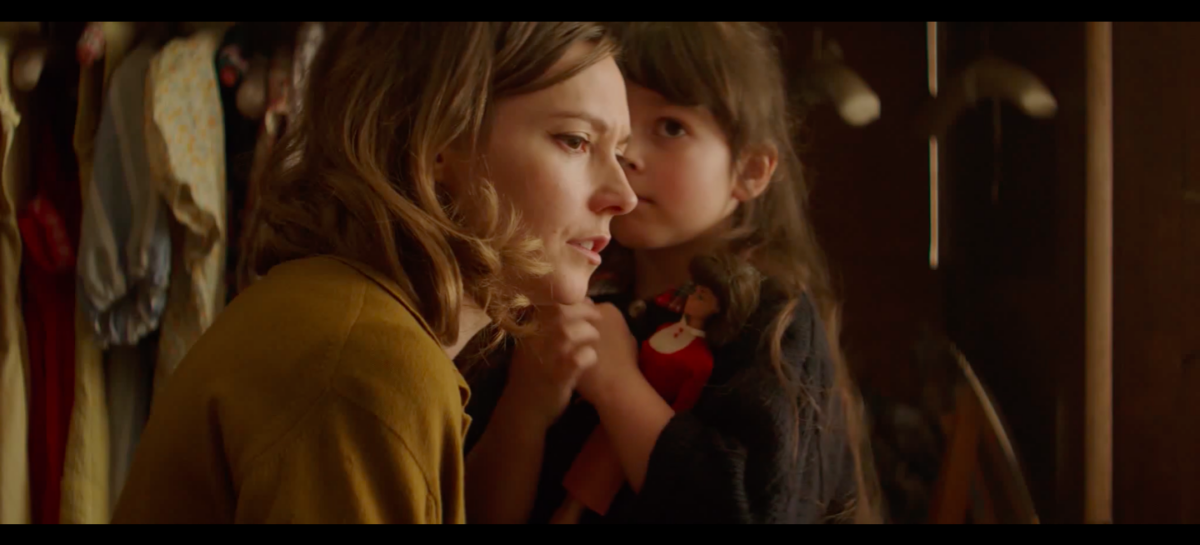Mark Rosenblatt’s live action short, Ganef, explores the all too persistent phenomenon of Holocaust trauma as passed on from one generation to the next. It will be screened at the Manhattan Short Film Festival, which runs from September 23 to October 3.
Approximately 13 minutes in length, it unfolds in a house in London in 1962. Ruthie (Izabella Dziewanska), a little girl of about 10 years old, is playing by herself, twirling furiously and falling down in a heap on the floor.

As she watches Ruthie, Lynn (Sophie McShera), the cleaner, makes faces and runs after her playfully.
Ruthie’s mother, identified as Mrs. Hirth (Lydia Wilson), comes home, two shopping bags in hand. When Ruthie asks what’s inside, she refuses to answer. Consumed by curiosity, Ruthie asks again.
Mrs. Hirth, an attractive and stylishly-dressed woman, tells Ruthie a story about an incident during her childhood in Frankfurt. A German soldier, whom she describes in Yiddish as a ganef, or thief, barged into her family’s home and helped himself to some of their possessions. Mrs. Hirth is obviously referring to the Nazi era, when German Jews were persecuted and robbed.
If the soldier hadn’t known what was in the house, he would not have broken in and made off with his ill-gotten gains, says Mrs. Hirth, who has learned to be secretive. Hence, she prefers to remain silent about what she has just purchased and brought back home.
It’s abundantly clear that Mrs. Hirth, a survivor of antisemitic persecution and the bearer of a Nazi tattoo on her arm, was profoundly affected by this searing experience in Frankfurt. And now, in post-war London, she is transmitting its psychological effects to Ruthie.

In the next scene, Ruthie catches Lynn stealing a bowl from the china cabinet. She tells her mother, and Mrs. Hirth has a conversation with Lynn behind closed doors.
Ruthie, in the following scene, Ruthie watches Lynn invading her mother’s privacy by trying on her fine clothes. Ruthie accuses her of being a “ganef” and a “thief.” Ruthie, having started off as a completely innocent girl playing in her parent’s house, has learned to be watchful and suspicious.
Rosenblatt, the director and writer of Ganef, is the grandson of Jews hounded out of Germany by the Nazis.
As he writes, “My maternal grandmother’s immediate family were German Jews, hid in Nazi Europe, narrowly avoided deportation and somehow survived, though a great many of their wider family were murdered. Listening to my grandmother’s gobsmacking tales of survival as a child at the dinner table on a Friday night filled me with horror, gratitude for being alive at all and fear of what the world was capable of. And, from a young age, I could sense my grandmother’s own inferiority complex. Even her constant reluctance to tell her amazing story, certain it was boring, revealed a sense of worthlessness so often bound up with the experience of survival.

“As I grew older, I became more attuned to the clues – tiny and, occasionally, tragically, huge – that kept revealing the lifelong, mental scarring of that generation. My grandmother crossed the road to avoid anyone in uniform, could never take a taxi, never truly recovered the confidence an education might have given her.
“So I was very aware that the war did not end in 1945. No matter how loved they were, no matter how their new lives in a new country offered them safety, what they went through haunted them every day of their lives. And I was also aware of how that sense of horror carried down to my own mother, how it manifested in her own ongoing determination to memorialize: to research and document her family’s experiences and to work tenaciously to set up national Holocaust memorial events.
“In Ganef, I wanted to explore that trauma in a complex way — how destructive and pernicious and self-perpetuating it could be. How trauma of this kind, whoever the victim, lives on beyond the short lifespans of news cycles, for lifetimes and for generations. How it can breed mistrust, some understandable, some irrational and unnecessarily divisive. How a parent who survived acute trauma might often try to protect their child from the world and only succeed in turning them against it.
“I also wanted to represent an experience I rarely see on screen: the private experience of survivors of persecution many years after the end of the persecution itself.”
In Ganef, Rosenblatt conveys this message.
